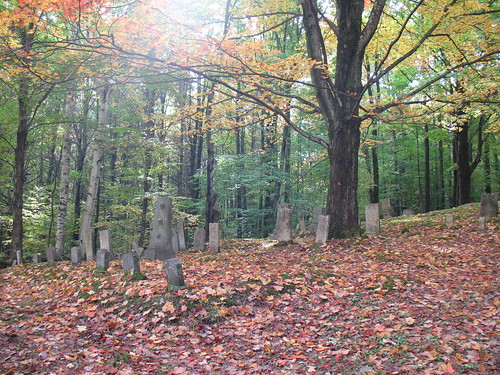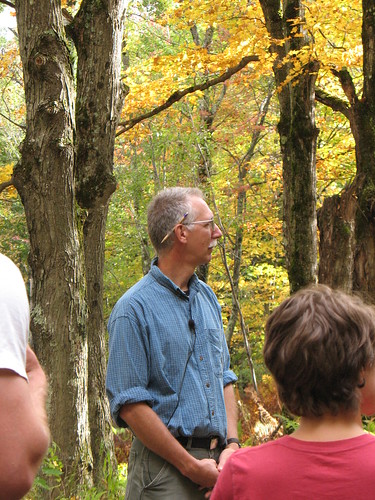[middtube nzucker mp3: carolinecamara_nzucker_10.27]
I interviewed Caroline Camara, a science teacher at Mount Abraham High School in Bristol, on October 27th. She reflected on the many outdoors experiences she had growing up which convinced her to become involved in scientific and environmental education. Camara emphasized the ethical nature of the curriculum she teaches, which focuses on issues ranging from genetically modified foods to global warming. She seemed particularly moved by the support of the community, even when teaching students about controversial issues.
0:40 Camara discussed how living on the coast of Maine as a child had made her love the outdoors. She observed the various ecosystems found in tide pools, and she came to understand the need for humility in the face of the great outdoors. “I wanted to be Jacques Cousteau. I was fascinated with the strength and power of the ocean.”
3:40 Science was the main focus in Camara’s academic life, and she came to Saint Michael’s College in Winooski as one of the first biochemistry majors of the school.
5:45 Camara found a true sense of community at Saint Michael’s, and she met her husband who wanted to remain in Vermont. They decided to settle in Starksboro, finding that the town offered a communal atmosphere.
7:40 After college, Camara worked for main years at a biotechnology company in Burlington, but she refused to accept a management position that she felt would cause her to violate ethical standards in the treatment of the workers. Becoming bored with lab work, she pursued teaching as a career that would be both fascinating and community-oriented.
9:20 Camara now teaches earth science to 9th graders at Mount Abraham High School. She also teaches lab chemistry classes for older and more advanced students. Particularly enjoyable for Camara is helping students make the transition into high school and mature as they progress through the grades.
11:10 Science is more than information and facts; it’s about learning how to think and act like a scientist while also involving ethical issues, such as the consequences of genetic modification, in the process.
12:30 The ninth grade earth science program has global climate change as its central theme, and student activism on the issue is encouraged. Camara attempts to present global warming in a balanced manner, and the student body is generally receptive because of their great knowledge of world issues and events.
15:00 Students are becoming involved in political activism, such as through the organization 350.org, which is attempting to find solutions to the climate crisis.
16:20 Camara and her students have begun a program to bring more local foods to the dining services at Mount Abraham. They have talked to a world-class chef at a nearby high school about implementing more environmentally-friendly products. “The big theme that we’re trying to teach is sustainable living,” remarked Camara.
18:10 Vermont’s progressive culture has helped Camara bring these issues to the forefront in her curriculum. The administration and the community have been incredible supportive.
19:00 Camara and her husband felt a bit shunned when they first moved to Starksboro, but they got involved with town events such as sports teams for their children and were gradually accepted as members of the community.
20:50 Looking towards the future, Camara hopes that Addison County will retain its rural character and that the farms will profit. For her, bio-fuels are a way in which farmers might make profits in a 21st century economy. “I hope we retain that agricultural heritage,” she said.
21:35 In a future Addison County, Camara wants to see wild spaces and wildlife corridors both preserved and expanded. She sees this mission being accomplished through greater education to the public, and she wants development to be carefully controlled so that the towns do not simply become bedroom communities to Burlington. However, Camara also appreciates that higher property taxes are an issue and that some industry needs to be developed, hopefully a sustainable one.
24:00 Through Mount Abraham High School’s field research program, Camara feels students are being taught how to plan for sustainable communities and towns that will be attractive to their future desires and dreams.

